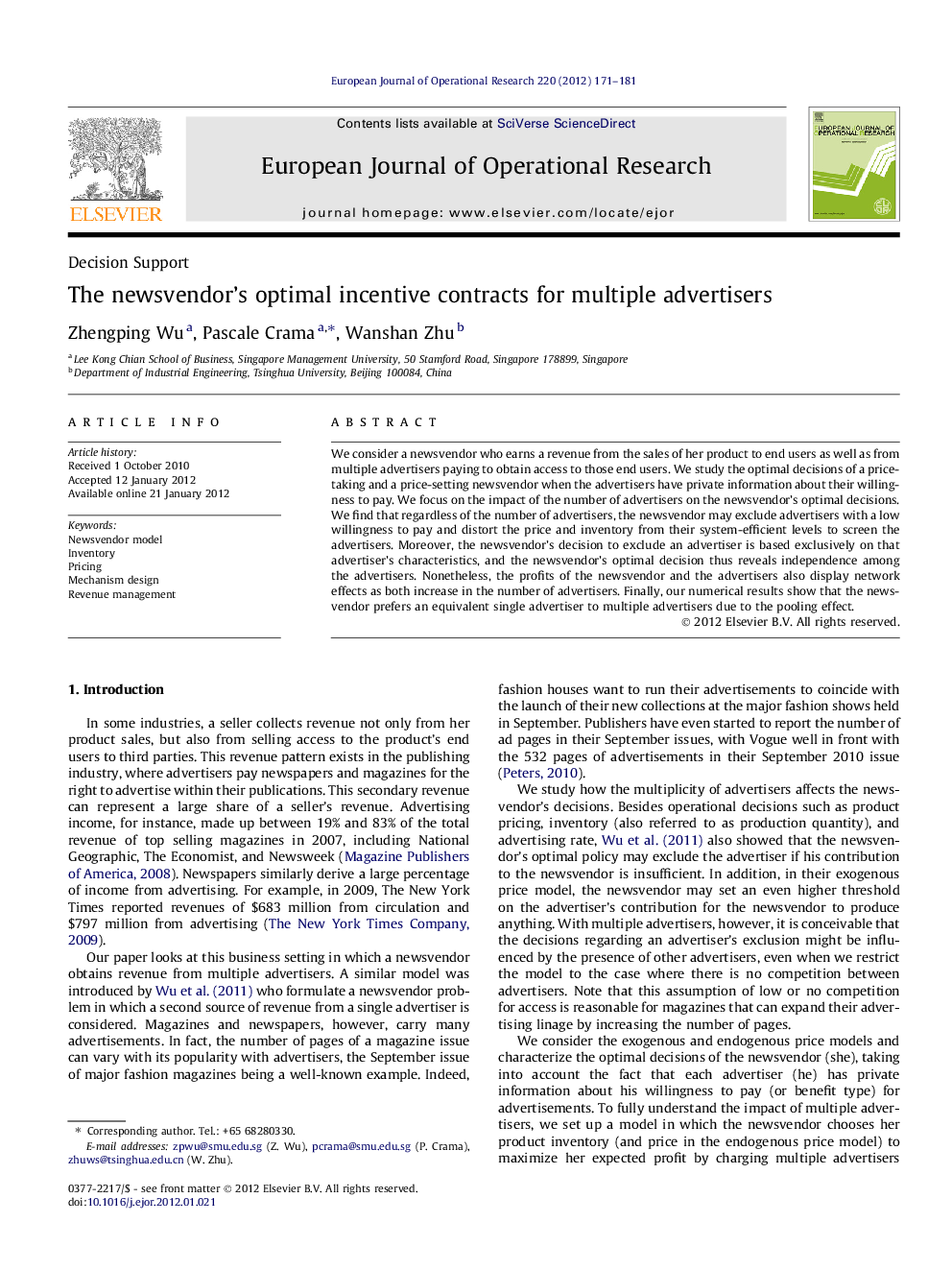| Article ID | Journal | Published Year | Pages | File Type |
|---|---|---|---|---|
| 480393 | European Journal of Operational Research | 2012 | 11 Pages |
We consider a newsvendor who earns a revenue from the sales of her product to end users as well as from multiple advertisers paying to obtain access to those end users. We study the optimal decisions of a price-taking and a price-setting newsvendor when the advertisers have private information about their willingness to pay. We focus on the impact of the number of advertisers on the newsvendor’s optimal decisions. We find that regardless of the number of advertisers, the newsvendor may exclude advertisers with a low willingness to pay and distort the price and inventory from their system-efficient levels to screen the advertisers. Moreover, the newsvendor’s decision to exclude an advertiser is based exclusively on that advertiser’s characteristics, and the newsvendor’s optimal decision thus reveals independence among the advertisers. Nonetheless, the profits of the newsvendor and the advertisers also display network effects as both increase in the number of advertisers. Finally, our numerical results show that the newsvendor prefers an equivalent single advertiser to multiple advertisers due to the pooling effect.
► A newsvendor earns sales revenue and a secondary revenue from advertisers with hidden valuation. ► The newsvendor determines production quantity and the advertisers’ fees to maximize revenue. ► We find that the advertisers’ participation decision is independent of the number of advertisers. ► We observe network effects as the newsvendor and advertisers are better off with more advertisers. ► The newsvendor prefers an equivalent single advertiser to two advertisers.
